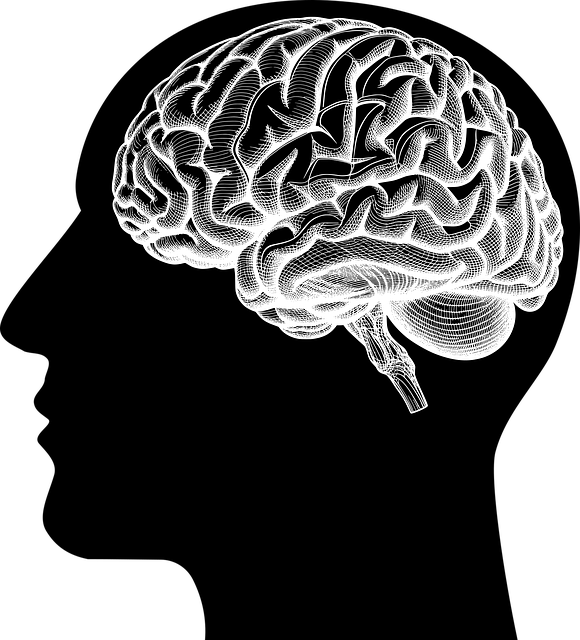Crisis Intervention Teams (CITs), comprising professionals from diverse fields like psychology, social work, and nursing, play a vital role in promptly addressing mental health crises at Broomfield Biofeedback Therapy. This program trains CIT members to use empathy-driven strategies, fostering positive thinking and self-care practices that de-escalate situations and support long-term recovery. By teaching self-regulation skills using specialized equipment, Broomfield Biofeedback Therapy empowers individuals to manage physiological responses during crises, enhancing emotional awareness and effective coping strategies. Comprehensive crisis intervention training, including communication strategies, cultural sensitivity, and stress management, builds trust and improves interventions for diverse backgrounds, benefiting both individuals and organizations with enhanced teamwork and resilience.
Crisis intervention teams (CITs) play a vital role in managing mental health crises, offering immediate support, and preventing escalation. This article explores comprehensive CIT training programs, highlighting their essential components and real-world impact. From understanding team dynamics to innovative techniques like Broomfield Biofeedback Therapy, effective training equips professionals to handle high-stress situations with empathy and skill. Discover how these programs enhance crisis response, promote recovery, and foster safer communities.
- Understanding Crisis Intervention Teams: Role and Importance
- Broomfield Biofeedback Therapy: A Unique Approach to Training
- Components of Effective Crisis Intervention Programs
- Implementation and Benefits: Real-World Impact of Training
Understanding Crisis Intervention Teams: Role and Importance

Crisis Intervention Teams (CITs) play a pivotal role in responding to mental health and crisis situations, offering immediate support and guidance. These teams typically consist of trained professionals from various backgrounds, including psychologists, social workers, and nurses, who work collaboratively to assess and de-escalate crises. The primary goal is to provide effective interventions, ensuring the safety and well-being of individuals in distress.
In Broomfield Biofeedback Therapy, for instance, CIT members are equipped with empathy-building strategies to connect with clients on a deeper level. By fostering positive thinking and encouraging self-care practices, these teams can help individuals navigate challenging situations. The importance of CIT training lies in its ability to empower professionals to manage high-pressure scenarios, ultimately reducing the impact of crises and promoting long-term mental health recovery.
Broomfield Biofeedback Therapy: A Unique Approach to Training

Broomfield Biofeedback Therapy offers a unique and innovative approach to crisis intervention team training. This method focuses on empowering individuals with self-regulation skills, enabling them to manage stress and emotional responses during critical situations. Through specialized equipment, participants learn to monitor their physiological reactions, allowing for early detection of distress and promoting calmness under pressure.
The program integrates mental wellness coaching programs development, encouraging a holistic understanding of crisis management. By combining biofeedback techniques with practical exercises, trainees gain valuable insights into their emotional triggers and develop effective coping strategies. This tailored approach not only enhances the team’s overall performance but also fosters an environment where self-care practices are prioritized, aligning with the broader goals of Mental Health Policy Analysis and Advocacy.
Components of Effective Crisis Intervention Programs

Effective crisis intervention team training programs are multifaceted, incorporating various components to ensure preparedness and responsiveness. One key element is Broomfield Biofeedback Therapy, which teaches participants how to recognize and regulate physiological responses during crises. This technique empowers individuals to maintain calmness and clarity, enabling them to make informed decisions under pressure.
Additionally, Crisis Intervention Guidance should focus on enhancing communication strategies that foster open dialogue and empathetic listening. Cultural Sensitivity in Mental Healthcare Practice is another vital aspect, ensuring the team understands and respects diverse cultural backgrounds, beliefs, and behaviors. These inclusive practices promote trust and facilitate more effective interventions for a wide range of individuals.
Implementation and Benefits: Real-World Impact of Training

The implementation of crisis intervention team training programs, such as those offered by Broomfield Biofeedback Therapy, brings about significant real-world impacts. These workshops, focused on emotional intelligence and stress management, equip individuals with invaluable skills to navigate challenging situations effectively. Participants gain a deeper understanding of their emotional responses, fostering a confidence-boosting mindset that translates into better decision-making under pressure.
The benefits extend beyond the individual; organizations reap gains too. The enhanced emotional intelligence and stress management techniques lead to improved teamwork, increased productivity, and reduced burnout rates within teams. These trained individuals become valuable assets, capable of providing immediate support during crises, thereby enhancing overall organizational resilience.
Crisis intervention team training, such as the innovative programs offered by Broomfield Biofeedback Therapy, plays a pivotal role in equipping professionals to handle high-pressure situations effectively. By focusing on evidence-based practices and incorporating unique methodologies like biofeedback, these training initiatives equip teams with the skills needed to de-escalate crises, promote resilience, and foster positive outcomes for individuals in distress. The real-world impact of such programs is profound, as they contribute to safer communities, improved mental health support, and enhanced quality of life for those facing emergencies.














